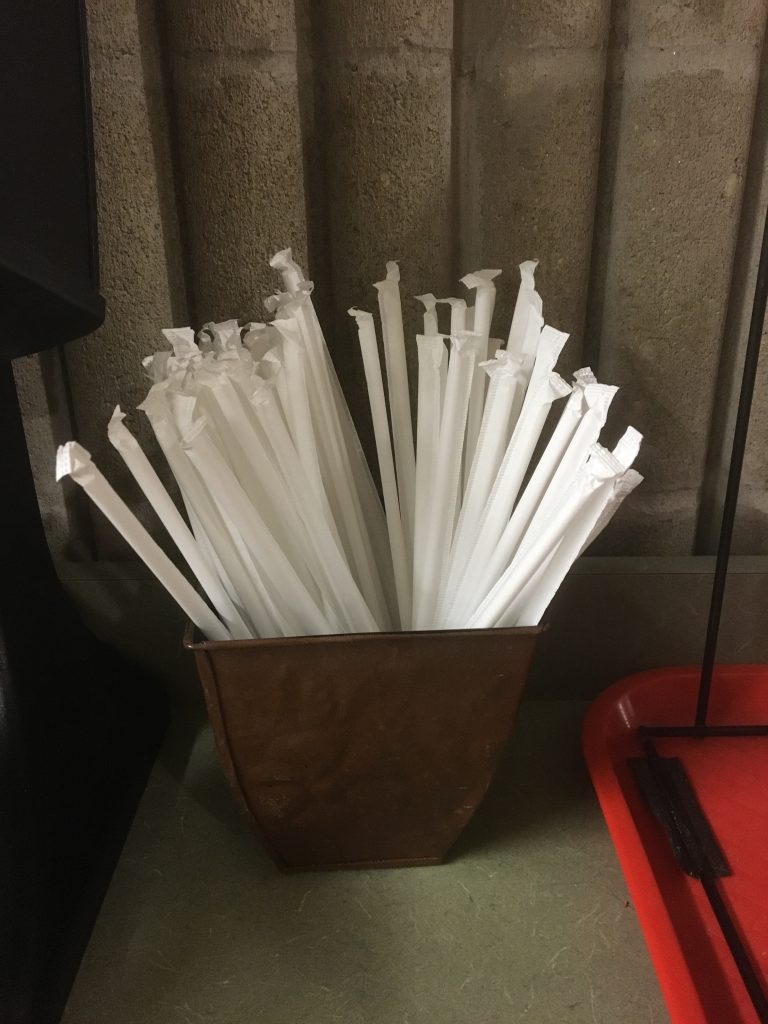By Sophia Schlegelmilch | Observer Contributor

As communities across the U.S. propose measures to limit or ban plastic straws, Christine Nelson, President of the Green Society, discussed their environmental impact and offered some greener alternatives.
“We use 390 million straws in one day [in the United States],” said Nelson, “you just use it for a few minutes, and then it’s gone and we don’t think about it.”
According to Nelson, plastic straws are particularly detrimental to the environment because they are in category #5, polypropylene, on the plastics grading scale and most curbside pickup recycling programs won’t recycle them.
“It’s really hard to find someone who will recycle a number 5,” she said. Instead, straws are thrown away, and their small size makes it easy for them to escape from trash cans and containers.
Eventually, these discarded straws make their way to the ocean, where they pollute the water and can harm wildlife. Rather than decomposing like a paper product might, plastics remain in the ocean water because they can only break down into smaller pieces over time.
“It never disappears,” said Nelson, “It will always be there.”
While paper straws are definitely a better option than plastic, Nelson pointed out that, “We’re using trees to make that straw, and if we go through millions of straws, that’s a lot of trees.” Additionally, she noted, paper straws often end up in landfills where they never actually decompose due to poor air circulation from tightly compacted trash.
Instead, Nelson recommended students use compostable straws made from potato starch or cornstarch. She also urged concerned individuals to contact vendors and the businesses they frequent to request that they switch to a compostable alternative to plastic straws.
Nelson added that the straws in the campus cafeteria are compostable, but they are typically disposed of with regular trash where they may not break down due to poor air flow. The Green Society hopes to bring composting to campus in the future.
Plastic straw bans have been the subject of nationwide news coverage throughout 2018. California passed Assembly Bill 1884, banning single-use plastic straws in all full service restaurants unless requested by customers. A similar ban went into effect in Seattle, requiring all food service businesses to furnish compostable or recyclable alternatives to single-use plastic items including straws, cups, and utensils. Hawaii introduced Senate Bill 2284, which would institute a statewide ban of distribution of plastic straws by businesses and individuals.
According to the Massachusetts Sierra Club website, “As of October 2018, 84 Massachusetts cities and towns, representing almost 40% of the state’s population, regulate single-use plastic shopping bags,” and “bottled water bans have been adopted by the communities of Concord, Great Barrington, Lincoln, Sudbury, and Brookline.” At this time there is no proposed state legislation on plastic straws and no data could be found to confirm plastic straw bans in any Massachusetts communities.
Comments are closed.